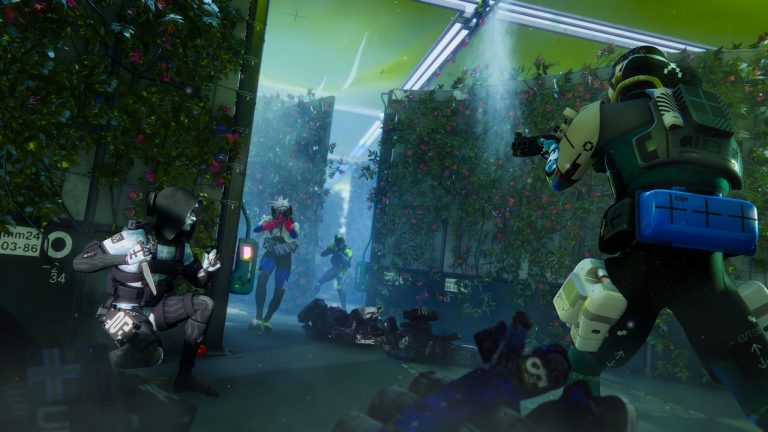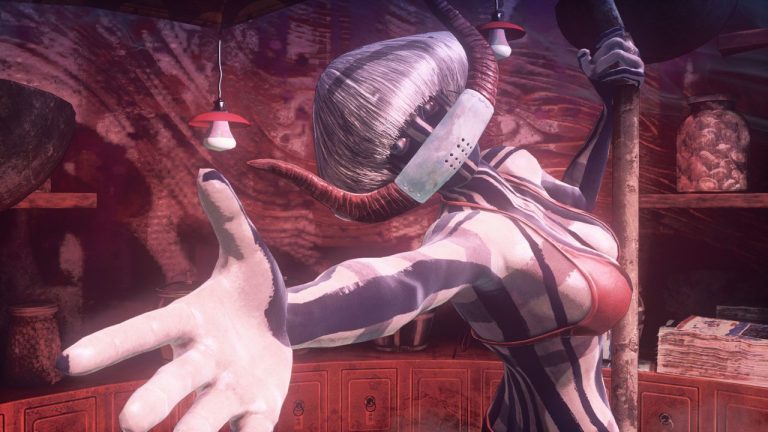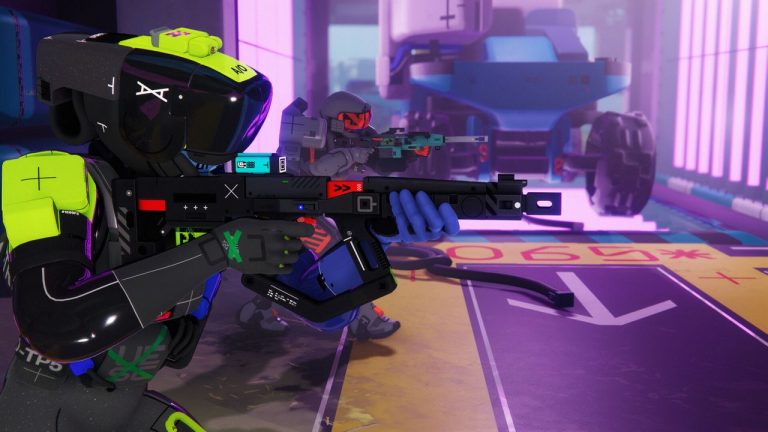I’d been eagerly awaiting Gundam Breaker 4, and not just because I wouldn’t need a Taiwanese PSN account funded with imported gift cards to play this one. Despite the fact that I can see three Gundam model kits from where I’m sitting, I’m a Gunpla neophyte: Kitbashing my own custom Gundams together is well beyond what me and my wallet are capable of. Now, with the long-awaited Western release of a proper numbered Gundam Breaker (we don’t walk about New Gundam Breaker), I’ve got a virtual library of decades’ worth of mech pieces for building my own mobile suits, all without needing to invest in the talent, tools, and time that actual kitbashing would demand.
In the last week, I’ve built a winged, axe-wielding terror I named the Gundam Skybreak. After wondering how well I could make a werewolf mecha, I produced an electric blue, taloned robot berserker I dubbed the Gundam Bisclavret. I’ve been gifted with an incredible power. I turned a Zaku into a horse.
(Image credit: Crafts & Meister)
Gundam Breaker 4 is a game that I love deeply, but it’s also a game I can’t recommend to everyone. If your idea of peak videogames is poring over pages of Gundam parts to piece together what the mid-season upgrade for your hand-built mobile suit might look like, then come along, kindred spirit: There is a new garden that grows Gundams, and it waits for our tending. If your bliss looks different from mine, though, we might have to hash some things out.
Endless waltz
You might, at this point, wonder whether the Gundams are any fun to actually fight with. I’ll put it this way: Combat in Gundam Breaker is like the WinAmp visualizer of videogames. The experience would be a bummer without it and you can get really deep into your setup if you want to, but it’s mostly there for the novelty of watching it move around. Gundam Breaker 4 has the action tag on Steam, but it is, first and foremost, a kitbashing simulator. The combat’s just a nice bonus.
Missions take place in arenas with arbitrary invisible walls, which you’ll slam up against while fumbling with lock-on controls during the awkward battles against occasional giant-size bosses. Gunpla combat is a mashy, largely mindless affair, made even more repetitive if you’re not switching out mobile suits between missions. While the story moving those missions forward has its charming moments, it’s a boilerplate shonen plot fueled by the power of friendship. And considering it’s also releasing on Switch, it all looks a little… coarse.
These are flaws! They’re just not flaws I care very much about.
(Image credit: Crafts & Meister)
I’m a firm believer that a game doesn’t need to be everything for everyone. Fun’s often best when it’s in a specific flavor. GB4’s mech fights might top out at “serviceable,” but I didn’t come for immaculate combat balance and a rich system for buildcraft. I’ve got Armored Core for that. I came to concoct a headcanon for why the manufacturers might’ve swapped out the Gundam Skybreak’s big greataxe for a pair of beam hatchets when I rebuilt it as the upgraded Gundam Skybreak Exalt.
High grade
GB4 brings some intelligent additions to facilitate my tinkering. Individual parts—both major components like heads, arms, and legs as well as the modular “builder parts”—can now be freely scaled and repositioned. The added precision is a godsend when trying to get pieces from 45 years of evolving Gundam designs to play nicely together without any unseemly clipping. A library of preset paintjobs based on existing mobile suits provides an excellent starting point for quickly narrowing in on a palette before fine-tuning individual color choices.
There’s a new diorama mode for building scenes to show off your builds. Custom Gunpla and preexisting mobile suits can be placed and posed together, and the scene can be further fleshed out with placeable explosions, vernier flares, beam effects, and background objects. The menus are finnicky, but it’s a better toolset for showcasing your mecha than the photography mode carried over from GB3.
(Image credit: Crafts & Meister)
As fun as it’s been making my own mechs, I love being able to see what mobile suits other players have cobbled together. I’ll jump into multiplayer sessions just to see what custom-built robots are standing around in the hub lobby. There’s a definite overrepresentation of Endless Waltz wings and Barbatos Lupus claws in Darth Maul colors, but I’ve also seen plenty of elaborate player-made Gunpla that’ve sent me straight back into the assembly screen to try and puzzle out how to capture the same effect with decals and builder parts they might’ve used.
The hub lobby also features a massive display area that’ll automatically pull in mech designs from other players as long as my internet connection’s online, showcasing their build as a real-scale Gundam statue even when I’m playing solo. Whether it’s featuring an immaculate mech build with a considered color scheme or a stumpy little tank with a horse head on it, it’s surprisingly entertaining to glance over between missions and see some proof of the builds other players are putting together.
In comparison, the combat in Gundam Breaker 4 might be a little stilted, but it’s not without its joys. Taking the time to properly kit out the stats on your mobile suit can leave you carving through swaths of enemy mechs with the terrifying efficiency of an anime ace pilot, and there’s a pleasant shot of dopamine when you blast pieces off of enemy Gunpla to collect for your next creation.
Ultimately, Gundam Breaker 4 is only a value proposition worth 60 dollars if combat’s main appeal is getting to see your own mobile suit in motion. For me, as with real Gunpla, the satisfaction’s in the assembly, and that’s the satisfaction GB4 puts first.












